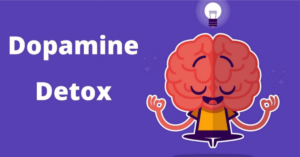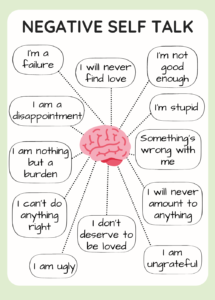The human body operates on a finely tuned internal clock...
Four Habits to Boost Brain Health
Maintaining optimal brain health is essential for overall well-being and cognitive vitality across the lifespan. Fortunately, scientific research in physiology, neuroscience, and neuropsychiatric has identified several habits that can promote brain health and cognitive functioning. In this article, we explore four evidence-based habits supported by physiological and neuropsychiatric principles.
- Regular Physical Exercise:
- Physiology: physical exercise promotes brain health through various mechanism, including increased blood flow, neurogenesis, and the release of neurotrophic factors such as brain-derived neurotrophic factor (BDNF).
- Neuroscience: exercise enhances synaptic plasticity, neurotransmitter function, and cognitive performance, particularly in areas associated with memory and executive functions.
- Neuropsychiatric approach: regular physical activity reduces the risk of neurodegenerative disorders such as Alzheimer’s disease and improves mood regulation, stress resilience, and sleep quality, all of which are crucial for optimal brain health.
- Balanced Nutrition:
- Physiology: the brain requires essential nutrients, including omega-3 fatty acid, antioxidants, vitamins, and minerals, to support neuronal function, neurotransmitter synthesis, and energy metabolism.
- Neuroscience: nutritional deficiencies can impair cognitive function and increase risk of neurodegenerative disease. Conversely, a balanced diet rich in fruits, vegetables, whole grains, and healthy fats support brain health and cognitive resilience.
- Neuropsychiatric approach: adopting a Mediterranean-style diet, which emphasizes plant-based foods, fish, and olive oil, has been associated with improved cognitive function, reduced inflammation, and lower risk of depression and dementia.
- Mental Stimulation:
- Physiology: engaging in intellectually stimulating activities, such as reading, puzzles, learning new skills, and social interaction, promotes neuroplasticity, synaptogenesis, and the formation of new neural connections.
- Neuroscience: mental stimulation enhances cognitive reserve, the brain’s ability to withstand age-related changes and neurological insults. It can also foster cognitive flexibility, creativity, and problem-solving skill.
- Neuropsychiatric approach: regular mental stimulation reduces the risk of cognitive decline and delays the onset of neurodegenerative disorders. Cognitive training programs and lifelong learning activities can help maintain cognitive function and preserve brain health.
- Quality of Sleep:
- Physiology: sleep plays a vital role in brain function, facilitating memory consolidation, synaptic pruning, and neurotoxin clearance. Chronic sleep deprivation disrupts these processes and impairs cognitive performance.
- Neuroscience: sleep disturbances are linked to cognitive deficits, mood disorders, and neurodegenerative diseases. Optimal sleep duration and quality are essential for maintaining cognitive health and emotional well-being.
- Neuropsychiatric: practicing good sleep hygiene, such as maintaining a regular sleep schedule, creating a restful sleep environment, and managing stress, promotes restorative sleep and enhances brain health.
Conclusion:
Incorporating these four habits – regular physical exercise, balanced nutrition, mental stimulation, and quality of sleep – into daily life can significantly contribute to optimal brain health and cognitive functioning. By understanding the physiological, neuroscience, and neuropsychiatric principles underlying these habits, individuals can empower themselves to make informed lifestyle choices that support long-term brain health and cognitive resilience.






